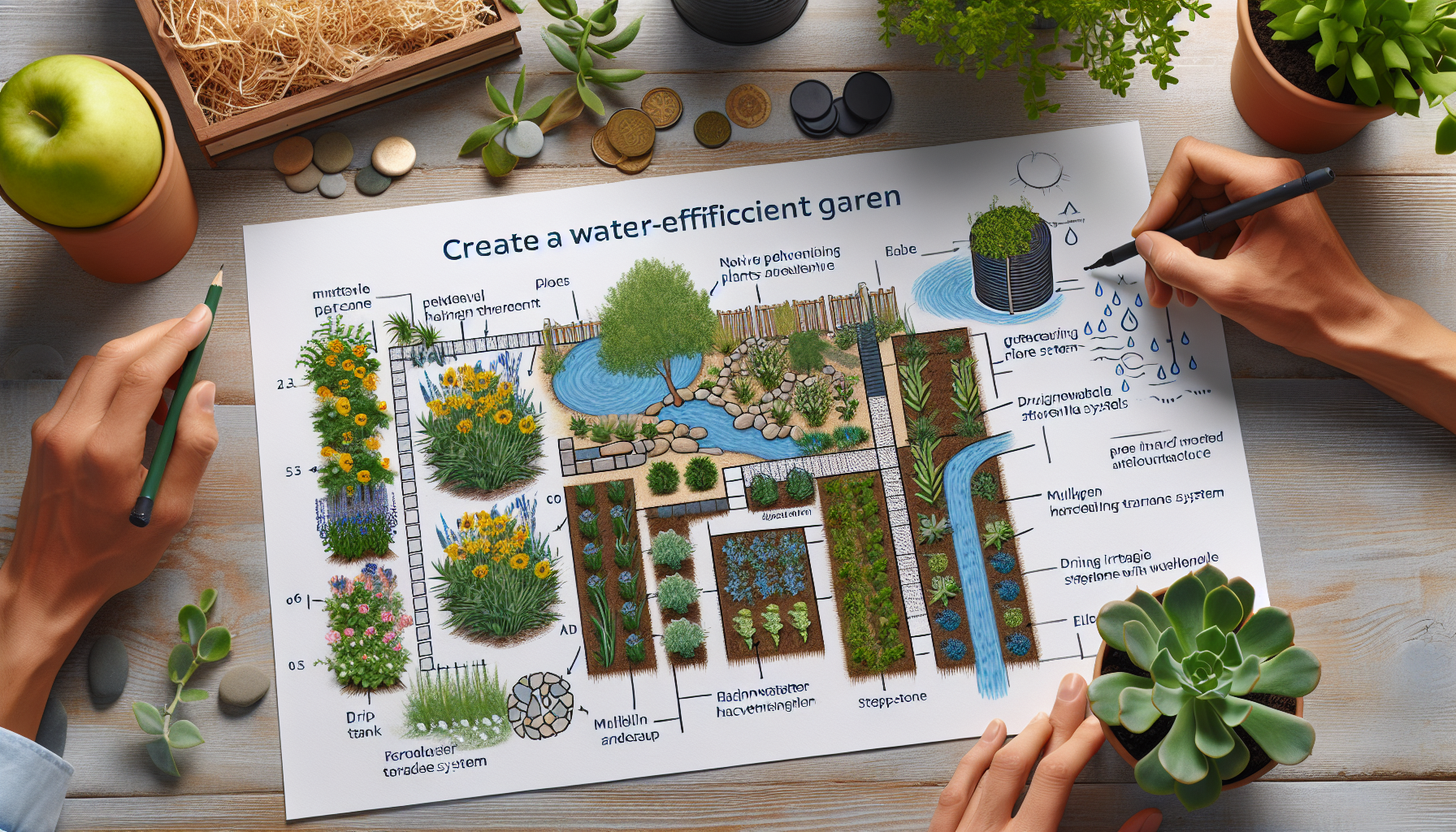
Efficient Irrigation Systems
Integrating a smart irrigation strategy is pivotal for maintaining a lush garden without wasting water. Drip irrigation systems deliver water directly to the plant roots, minimizing evaporation and runoff. By placing emitters close to each plant, you ensure that moisture targets where it’s needed most, enhancing water conservation and promoting healthier plant growth. Additionally, installing timers or using weather-based controllers can adjust watering schedules based on real-time conditions, preventing overwatering during rainy periods or excessive dryness during heatwaves.
Another innovative approach is rainwater harvesting. Collecting and storing rainwater from gutters not only reduces reliance on municipal water sources but also provides a natural, chemical-free option for water-efficient gardening. Rain barrels can be connected to your irrigation system, supplying a sustainable water reservoir that supports your plants throughout the growing season. Moreover, mulching around plants helps retain soil moisture, reducing the frequency of watering and further conserving water resources.
For those looking to automate their garden’s hydration, smart irrigation controllers integrate with smartphone apps, allowing remote management and monitoring of your watering system. These devices can learn your garden’s specific needs, adjusting the water output based on factors like soil moisture levels and local weather forecasts. Implementing such technologies not only streamlines your gardening routine but also contributes significantly to water conservation efforts by ensuring that every drop is used efficiently.
Sustainable Soil Management
Enhancing your garden’s resilience starts beneath the surface. Incorporating organic matter, such as compost or well-rotted manure, into your soil can significantly improve its structure and water-holding capacity. These amendments create a crumbly texture that allows roots to penetrate deeply while retaining moisture, reducing the need for frequent watering. Additionally, healthy soil teems with beneficial microorganisms that help plants absorb nutrients more efficiently, fostering robust growth even during dry spells.
Employing mulches is another impactful strategy for sustainable soil management. A layer of organic mulch, like shredded bark or straw, acts as a barrier against evaporation, keeping the soil cool and moist. This not only conserves water but also suppresses weeds that compete for moisture and nutrients. In drought-friendly gardens, mulching becomes indispensable, ensuring that each watering cycle is more effective and supports long-term water conservation.
Regularly testing your soil’s pH and nutrient levels can guide precise amendments, ensuring plants have the optimal environment to thrive. Adjusting soil conditions based on test results promotes efficient water usage, as plants are better able to uptake the water they need without excess. Additionally, incorporating cover crops during off-seasons protects the soil from erosion and maintains its health, contributing to a sustainable and water-efficient gardening approach.

